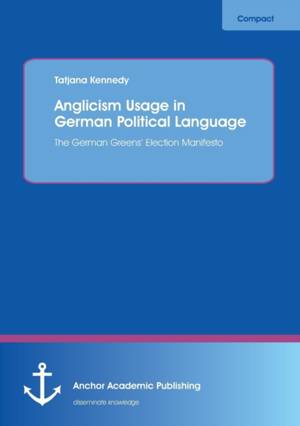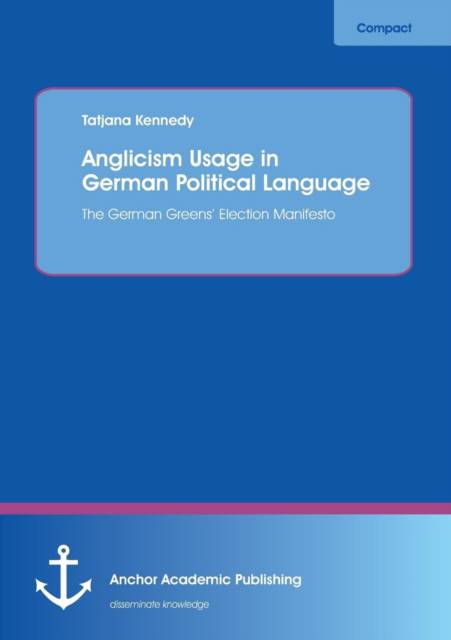
- Afhalen na 1 uur in een winkel met voorraad
- Gratis thuislevering in België vanaf € 30
- Ruim aanbod met 7 miljoen producten
- Afhalen na 1 uur in een winkel met voorraad
- Gratis thuislevering in België vanaf € 30
- Ruim aanbod met 7 miljoen producten
Zoeken
Anglicism Usage in German Political Language
The German Green Party's Election Manifesto
Tatjana Kennedy
Paperback | Engels
€ 34,45
+ 68 punten
Omschrijving
Every four years on Election Day, German citizens make their way to the ballot boxes to vote for the political party and candidate they would favour entering the government. What these voters are not aware of, is that whether their choice has resulted from political conviction or not, the set of political attitudes that found their favour is the result of a complex communication strategy the individual party's carried out long beforehand. Simply put: through political language, parties exercise power. This study looks at the mechanisms behind the communication strategy the Greens (BÜNDNIS90/DIE GRÜNEN) carried out. It focusses hereby on the language shown in their election manifesto of 2009, specifically analysing the many Anglicisms used. With this, the study gives a theoretical and empirical approach to the question what role the English Language plays in the political Language of German politics, particularly German Green politics.
Specificaties
Betrokkenen
- Auteur(s):
- Uitgeverij:
Inhoud
- Aantal bladzijden:
- 44
- Taal:
- Engels
Eigenschappen
- Productcode (EAN):
- 9783954892082
- Verschijningsdatum:
- 29/12/2016
- Uitvoering:
- Paperback
- Formaat:
- Trade paperback (VS)
- Afmetingen:
- 148 mm x 210 mm
- Gewicht:
- 68 g

Alleen bij Standaard Boekhandel
+ 68 punten op je klantenkaart van Standaard Boekhandel
Beoordelingen
We publiceren alleen reviews die voldoen aan de voorwaarden voor reviews. Bekijk onze voorwaarden voor reviews.











